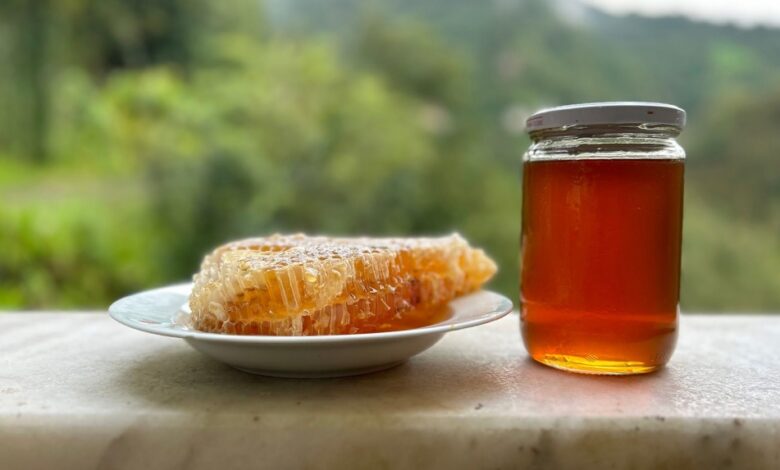All you need to know about Turkiye’s ‘mad honey’

Nestled high in the Kaçkar Mountains of Turkiye, a little wooden hut stands on metal-wrapped stilts, surrounded by the mist that drifts over the forested slopes. Inside, Hasan Kutluata, clad in a beekeeping suit, tends to his hives of bees that produce the sought-after deli bal, or “mad honey.” This unique honey is made from the nectar of purple rhododendron flowers that bloom in the spring, giving it a distinct flavor and aroma.
Deli bal contains a naturally occurring toxin called grayanotoxin, which can induce a gentle, soporific high when consumed in small amounts. However, ingesting too much can lead to dizziness, low blood pressure, nausea, and other symptoms. Kutluata emphasizes the importance of consuming this honey in moderation, as too much can be harmful.
The history of deli bal dates back centuries, with stories of Greek soldiers succumbing to its effects after overindulging. Despite the potential dangers, this honey continues to be prized for its medicinal properties, including its use as a folk remedy for various ailments.
Harvesting deli bal is not without its risks, as bears are known to raid the hives in search of the sweet treat. Kutluata recounts a harrowing encounter with a bear that left him with lasting scars, highlighting the dangers faced by those who work in beekeeping in this region.
Back at Kutluata’s family home near the village of Yaylacılar, three generations of beekeepers gather for lunch. The family enjoys a simple, natural life in the cool mountain air, surrounded by the purity of the environment that contributes to the quality of their honey.
Honey is a staple in Turkish cuisine, and the Kutluatas demonstrate how they mix it with butter and spread it on bread for a hearty breakfast. They believe in the healing properties of honey, using it to treat various ailments and finding solace in the peaceful presence of their bees.
While deli bal is legal in Turkiye and many countries, the U.S. Food and Drug Administration advises against its consumption due to the risk of “mad honey” poisoning. Consumers are urged to be cautious and check labeling to ensure they are not ingesting honey with high levels of grayanotoxin.
In conclusion, the production of deli bal in the Kaçkar Mountains is a labor of love and tradition, passed down through generations of beekeepers. Despite the risks and challenges, the Kutluata family continues to cultivate this unique honey, honoring their heritage and the natural beauty of their mountain home.




